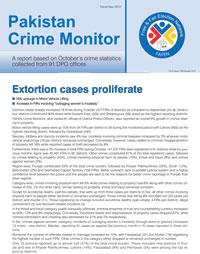A report based on monitoring of 146 government boys primary schools in 85 districts in November
ISLAMABAD, 15th January 2013: Lack of sanctioned positions for non-teaching staff was observed in government boys’ primary schools with on average only one person appointed to work either as a peon, a sanitary worker or a watchman, says a Free and Fair Election (FAFEN) report.
The report released on Tuesday said that 109 positions were sanctioned for support staff in 79 monitored schools which shared information about their appointment. Of these 96 positions were filled.
FAFEN observers who asked schools administration about the availability of support staff reported that only nine schools had services of a sanitary worker, 35 had a peon while a watchman was available in 45 schools indicating that at least 56 schools were operating without any of the above mentioned staff.
On average, 187 students were enrolled and five teachers appointed in each of the monitored schools. Since support staff is crucial for facilitating students and teachers and keeping them safe, it is important that the concerned authorities should ensure adequate availability of support staff in each school.
Sixty five visits by government officials to the monitored schools were also reported– implying that a minimum 81 schools were ignored altogether. Though most of them were monitoring visits, many schools lacked support staff, suggesting the need of more informed oversight.
However, the number of sanctioned teachers’ positions and occupancy rate was found satisfactory (94%) with 710 posts out of 758 occupied.
As for general facilities, all schools operated out of proper buildings; 79% had boundary walls and 90% were clean.
Classrooms of more than 90% schools had windows, lights and black/white boards. All the schools were providing free textbooks to students.
However, 40% schools lacked desks and benches/chairs for students. Moreover, 25% had no arrangements for drinking water. One-fourth did not have electricity and fans.
Furthermore, 76% were without staffrooms for teachers and another 59% had no playgrounds.
The students-per-teacher ratio was found satisfactory (37) and below the government-set limit of 40 for primary schools. Region-wise, Khyber Pakhtunkhwa had a 44 ratio, Punjab (38), Balochistan (36), FATA (33), Sindh (29) and ICT (27).


